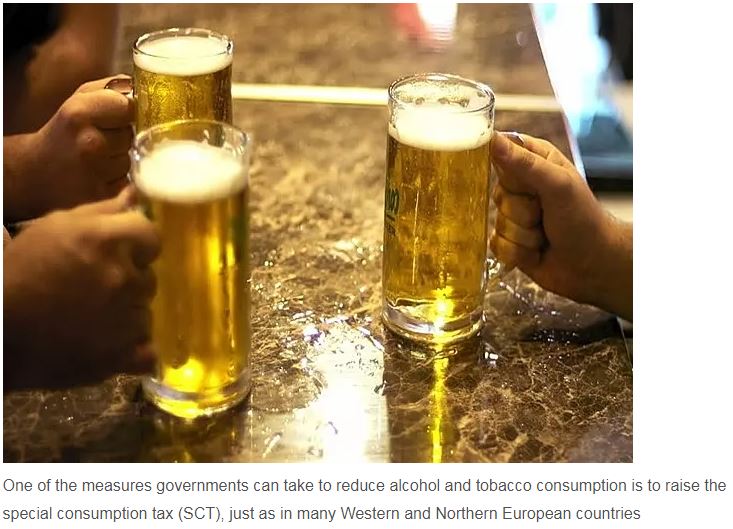Vietnam will raise special consumption tax on cigarettes, beer, and spirits
Cigarettes, beer, and spirits in Vietnam will be subject to an increased special consumption tax (SCT) aiming to improve community health and tackle the national budget deficit as part of a comprehensive tax reform strategy for 2030.
Alcohol and tobacco taxes have long been a reliable and major source of revenue for many governments. Much emphasis has been dedicated to how such levies might be utilised to achieve public health goals by lowering the consumption of certain items with negative health and social consequences. One of the measures governments can take to reduce alcohol and tobacco consumption is to raise the SCT, just as in many Western and Northern European countries.With Decision No.508/D-TTg approving the Strategy for Tax System Reform to 2030, which was approved on April 23, the government will develop a road map to increase the SCT on tobacco, beer, and alcoholic products to limit production and consumption and meet international commitments, as well as review and adjust excise tax rates on several commodity items to suit socioeconomic conditions.
In Vietnam, alcoholic beverages are currently subject to an SCT of 65 per cent, increased from 50 in 2018, while the SCT on tobacco stands at 75 per cent as of 2019.
Like in many countries, the introduction of a heavier SCT generates two sides of the debate. Private businesses have profit incentives, actively pushing for more alcohol use. However, it is in the public interest to avoid and minimise damage from alcohol consumption, as well as to reduce and prevent alcohol and tobacco usage in general.
Earlier this year, Le Hoang Anh, a member of the general secretary of the National Assembly, raised his voice in favour of the SCT rise, saying that the tax must be raised to curb cheap cigarettes, alcohol, and beer.
Smoking rates in Vietnam are one of the highest in the world according to the World Health Organization (WHO), while in recent years, Vietnam’s alcohol consumption, particularly beer consumption, has risen dramatically. Vietnam is Asia’s third-largest beer drinker, with volumes increasing by an average of 6.6 per cent over the previous six years, compared to the global growth rate of 0.2 per cent.
According to Anh, this is the time to consider increasing taxes on products that need to be limited, while ensuring people’s health, increasing budget revenue, and reducing other damage and social consequences.
Some National Assembly deputies also called for an increased SCT on cigarettes, to up to 85 per cent, saying that there are about 15 million Vietnamese smokers, spending about $1.34 billion on this product a year. Meanwhile, the medical cost of tobacco-related diseases reached $1.04 billion. Therefore, further discussions will focus on clarifying the interests of the involved parties before deciding on how much to increase the tax.
According to WHO’s report released in February, taxation on alcohol should be considered a health measure and not purely an economic instrument. The WHO stated that there is consensus among many of its member states to follow the recommendation of a minimum of 75 per cent tax share of the retail price of tobacco, a goal that has already been achieved by more than half of the 53 countries.
Source: VIR


 English
English




